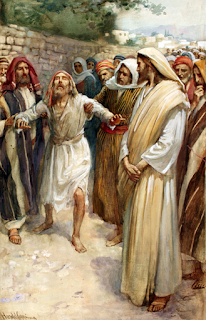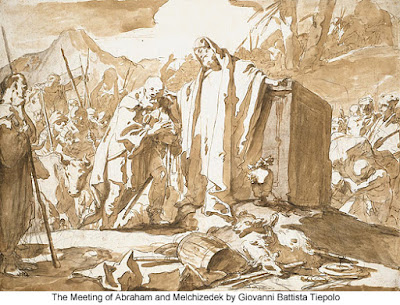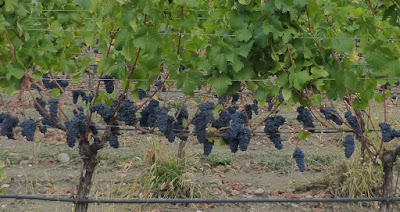 |
| "Red Christ" by Lovis Corinth |
TO CHEW ON: "Almost everything is cleansed by blood, according to the Law's regulations, and there is no forgiveness without blood being shed." Hebrews 9:22 (Common English Bible)
Two facts about physical blood help us relate what the writer says here to our spiritual state.
1. Blood is a cleanser. Not the kind of cleanser that you pre-soak clothes in—do that with blood and you'll get a worse stain. But it is a cleanser within our bodies loading up with proteins, minerals, hormones, carbon dioxide, and toxins, which it then pumps to the transfer depots, the lungs to be exhaled or through the liver to be cleansed.
2. Blood is essential to life. When people lose all blood they die because blood delivers to the cells its fuel of oxygen and nutrients.
God's design for our salvation includes these two aspects of blood. The sentence in our focus verse: "There is no forgiveness without blood being shed" is another way of saying, 'there is no forgiveness without the payment of a life.' And that's what Jesus did for us when He paid the penalty of our sin with His life so God could forgive us without violating His holy, just character.
His blood also cleanses us, first in that we are clean before God, and, second, by flowing within our spirits in a metaphorical way, producing the desire to please Him resulting in repentance and surrender (exhaling the bad stuff, so to speak, and allow Him to purify us).
As I'm writing this, an old hymn is playing background music in my mind. It expresses these spiritual truths about Jesus' blood so well:
1. What can wash away my sin?
Nothing but the blood of Jesus;
What can make me whole again?
Nothing but the blood of Jesus.
Oh! precious is the flow
That makes me white as snow;
No other fount I know,
Nothing but the blood of Jesus.2. For my cleansing this I see—
Nothing but the blood of Jesus!
For my pardon this my plea—
Nothing but the blood of Jesus!
3. Nothing can my sin erase
Nothing but the blood of Jesus!
Naught of works, 'tis all of grace—
Nothing but the blood of Jesus!
4. This is all my hope and peace—
Nothing but the blood of Jesus!
This is all my righteousness—
Nothing but the blood of Jesus!
Lyrics by Robert Lowry, from Hymnal.net
PRAYER: Dear God, thank You for the way You have designed spiritual truth to reflect physical phenomena (or is it the other way around?). Thank You for my blood, working tirelessly to keep me alive and healthy. And thank You for Jesus' blood, poured out so I could have forgiveness and spiritual life and health. Amen.
*********
Unless otherwise noted all Scripture quotations are taken from the New King James Version®. Copyright © 1982 by Thomas Nelson, Inc. Used by permission. All rights reserved.





















